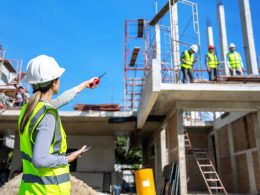In recent years, environmental sustainability has become a crucial factor in real estate investment. With the world becoming more environmentally conscious and aware of the impact of human activities on our planet, investors are now looking beyond financial returns and considering the long-term effects their investments have on the environment. In this blog post, we will explore how environmental sustainability is changing real estate investment and why it’s essential for both investors and developers to embrace eco-friendly practices in their projects. Join us as we delve into this fascinating topic that’s transforming the industry!
What is Environmental Sustainability?
Environmental sustainability refers to a process that leads to the protection and enhancement of natural resources, the maintenance of ecosystems in which people and other organisms can thrive, and improving the quality of life for people. The goal of environmental sustainability is to ensure that human activities do not have an adverse effect on the environment, but instead support its healthy functioning.
Environmental sustainability has been at the forefront of real estate investment for some time now. In fact, many real estate professionals believe it is one of the most important factors when evaluating an investment property. There are a number of reasons why environmental sustainability is such a critical component in real estate investment:
1) Property values can be affected by environmental degradation. For example, if a neighborhood is afflicted by pollution, it may become more difficult or expensive to sell or lease property in that area.
2) Negative publicity surrounding environmentally-disruptive projects (e.g., oil spills) can affect both the value and desirability of properties in those areas.
3) Climate change is already having an impact on real estate prices and demand around the world. As global temperatures increase, coastal communities will be particularly vulnerable to increased flooding and erosion; meanwhile, regions that experience hotter summers may see drops in housing values as residents move away due to heat-related health problems.
4) The number of people living in poverty is projected to increase worldwide as Resulting climate change impacts intensify – making it even more important for sustainable development practices
What are the Benefits of Environmental Sustainability in Real Estate?
The benefits of environmental sustainability in real estate investment are numerous, and include: Reduced environmental impact.
Reduced risk.
Lower operating costs.
Increased financial returns.
Enhanced marketability.
Notable examples of environmentally sustainable practices in the real estate industry include water conservation, energy conservation, reduction or elimination of waste, and renewable energy use.
How to Implement Environmental Sustainability in Your Real Estate Investment Strategy
Environmental sustainability has become an increasingly important aspect of real estate investment. It is no longer enough to simply avoid environmental damage, many investors are seeking to do more by implementing environmental sustainability measures into their real estate portfolios.
There are many ways to go about this, and it largely depends on the investor’s budget and interests. However, there are a few basic concepts that can be applied to nearly any property type:
Reduce energy consumption: One of the easiest ways to reduce your environmental impact is simply by using less energy. Make sure you’re using LED lighting in your buildings, retrofit appliances with low-energy versions, and stick to solar or wind power when possible.
One of the easiest ways to reduce your environmental impact is simply by using less energy. Make sure you’re using LED lighting in your buildings, retrofit appliances with low-energy versions, and stick to solar or wind power when possible. Minimize waste production: Another simple way to reduce your environmental footprint is by reducing the amount of waste produced during construction and renovation projects. Try recycling materials where possible, composting organic waste if you have space for it, and eliminating packaging wherever possible.
Another simple way to reduce your environmental footprint is by reducing the amount of waste produced during construction and renovation projects. Try recycling materials where possible, composting organic waste if you have space for it, and eliminating packaging wherever possible. Reconfigure transportation patterns: A big part of producing greenhouse gas emissions comes from transportation
Conclusion
Environmental sustainability is changing the real estate investment landscape, and it’s not only small investors who are feeling the pressure. Large institutional investors are beginning to take notice of how climate change is affecting property values, and they’re demanding that developers and landlords make their projects more environmentally friendly. If you’re planning on investing in real estate in the near future, it’s important to keep these changes in mind.












